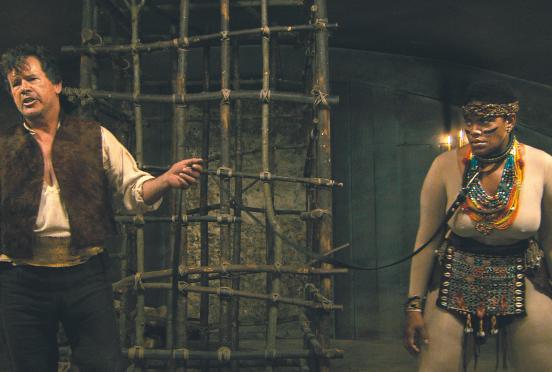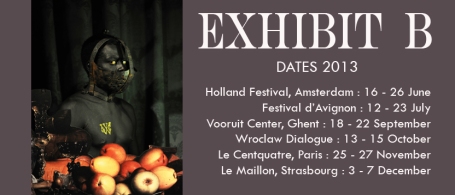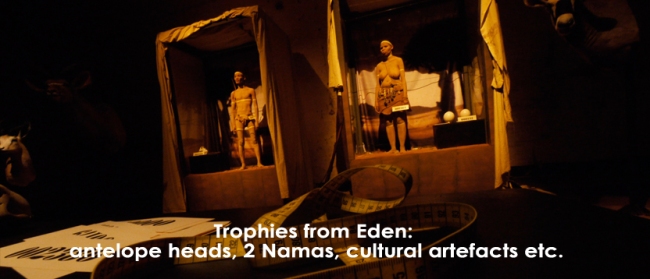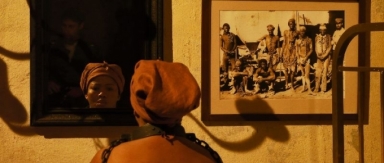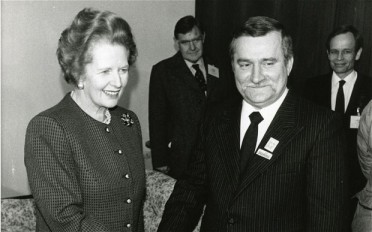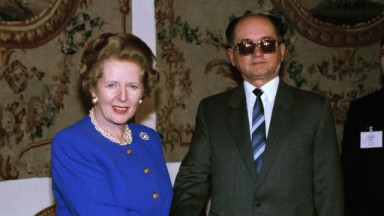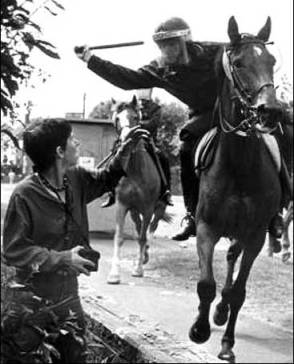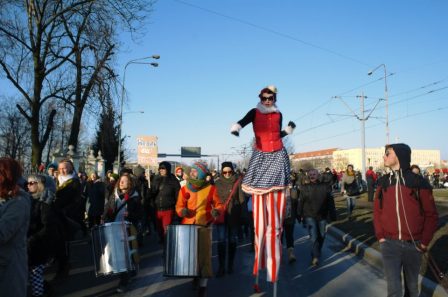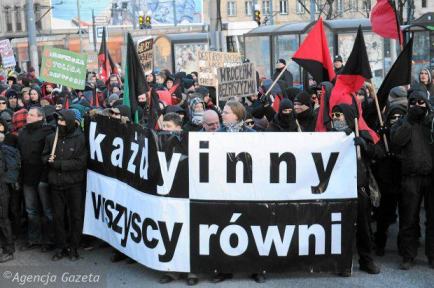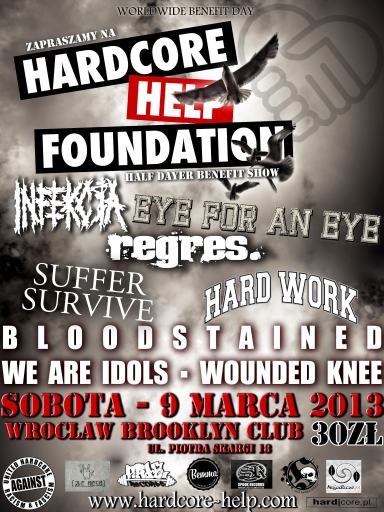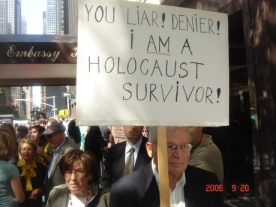“I’m not giving any flowers to anyone. It’s a load of sexist shite; women are expected to do all of the work at home, be reduced to the role of mother, get less pay at work, are excluded from high positions and then, as way of thank you, receive a flower. Nah, International Women’s Day in Poland is about the illusion of respecting women. In fact it’s sexist towards women”.
Said my male friend.
“But I like it”, I replied. “My only bother with women’s day is the environmental cost of sending tulips from Holland here.” “Or even from Kenya. Remember that article we saw about Kenyan girls being paid little money in order to pick tulips, where they are exposed to pesticides? They’re paid little in order that some western white person can give them to women here”, he replied. “Well, as a girl I got flowers from my father and my brother, carnations, grown in Poland. It was always a nice day”, I said. “That’s as may be, but still. Nice things aren’t always good, as I always say”, he countered. “No, you don’t say that. You say ‘Not everything that is good is legal'”, I said.

Taken from the Cafe Pestka page on Facebook
“Oh yeah”, he said, distracted. He sipped his coffee as he watched a black cat with white paws going by outside. He followed the cat’s progress, as the cat tried to avoid walking in the snow.
I brought his attention back to myself. “I’ve never called myself a feminist, you know”, said I. “Feminists are those who are just too…..extreme. Yesterday on Twitter I was looking at what women were writing about men, in relation to International Women’s’ Day. It was full of shite like, ‘Give the man a simple task, they can’t multi-task’ and ‘Do we even need men?’ and the such. Remember that video of feminists disrupting a talk about battered husbands? Nah, I can’t call myself a feminist. My mother was a feminist and bossed my father around, and he just took it.” “Heh”, said he, “Then I have a more radical feminist position that you or indeed another women I know. Being feminist isn’t about being anti-men, you know. That’s so 1970s”.
I changed track, “I’ve been following the debate in Germany about whether companies should have a minimum quota of women on boards of directors. Among some young German women I know, this is the theme they talk of. I read this article in a left-wing magazine that pointed out that these women who may go on boards are those women who have worked hard, and as a consequence have paid girls to look after their children in order to free them to work. These paid girls mostly get paid little, and many come from Poland. Is that feminism? Where rich western women end up being paid more?”
During my little speech my friend was supping on his latte. As I mentioned the words “rich western women” he put his coffee down and leaned forward. “I was reading that book by Birgit Rommelspacher in which she complained about the same thing, from a feminist perspective. She pointed out that domination happens across many levels: Being women, being an immigrant, not being able bodied, having dark skin…..the question is whether a white-skinned middle class woman in Germany is more discriminated than, say, a male asylum seeker from the Sudan”.
I nodded. I saw a man in a suit come in, and remembered something. “You know what pisses me off, though? I was at work the other day and a male apprentice was there. A customer came in and he spoke to the apprentice, even though I was at the desk and he was trying to work on the side of my colleague’s desk”.
“What did you do?”, he asked. “I simply smiled and answered. Still, the customer continued to talk to the apprentice like I wasn’t even there”. “Gobshite”, he said, sitting back. Things in Poland really have to change. Stuff like abortion or pay or textbooks in schools are important, but daily relations are important as well. It’s ridiculous that, for example, that woman politician, what’s her name? You know, that local one from PO. She did a speech on TV and what was the debate about afterwards on the comments board on Gazeta Wyborcza? That she’s put on weight. Winds me up, that kind of shite”.
“You can’t always be angry on women’s behalf, you know. I’m doing my best to get by. Sometimes one has to accept society’s rules in order to get on. It’s alright for you, a man, to sit there getting wound up about feminism, but in the reality of my life I benefit from accepting society’s rules. Keeping the peace can get one further”. “At what cost, though?. You get pissed off about being talked down to. Just the other day you were complaining about a male colleague who works less hours but gets paid more”.
“True. Anyway, I can’t always be the radical kind. It costs me energy. I don’t want to be the forever angry woman like my mother”, I replied.
At this point a flower seller came in, going to my friend and asking him whether he wanted to buy one for me. He said no.
After he left my friend said, “Sexist shite, expecting me to be the active one and you to be the passive and thankful one. It’s like on trains when a girl comes on and men offer to help her with their luggage. It’s about showing who is weak and who is strong”.
“You’re one for strong opinions today”, I replied. “How many coffees have you drunk?” “Just this one. Nah, I mean it.” “I know girls who do have problems with lifting luggage”, I offered. “You don’t have such problems”, said he. “You’re right. I’ve got strong shoulders.”. “Because you go swimming a lot. Girls who don’t exercise their body will end up weak. I find that these gentlemen who always let women first onto trams and the such are actually sexist in that they consider the woman to be in need of help”.
“Girls aren’t expected to be physically strong. They’re expected to do all the work at home, and be pretty”. “So you’re agreeing with me?”
“Not really”, I said. “What you don’t understand is that many women in Poland like to receive flowers, and have men lifting luggage for them. These men who buy flowers and lift luggage are not thinking “haha I’m being a sexist bastard now’, rather, they want to help. In any case, you help women with luggage”. He looked at the window and thought. He replied, “Well, I tend to be stronger than them. In Poland certainly. Apart from reproductive stuff, our bodies are the product of sexually constructed gender roles”.
“One can tell that he’s been reading academic books lately“, I thought. He continued, “In any case, those complaining about rich white German womens’ feminism are German feminists themselves. That’s the thing I like about Manifa in Poland. The criticism that is being done is not narrow, rather, it takes an anti-capitalistic point. Last year on the march there were many banners about the cost of the new stadium in Wrocław and how that money could have been spent on affordable homes for people in Wrocław who live in poor quality flats, such as without toilets. Actually, half the people at the march were men. For me, this was a feminism I was very comfortable with”
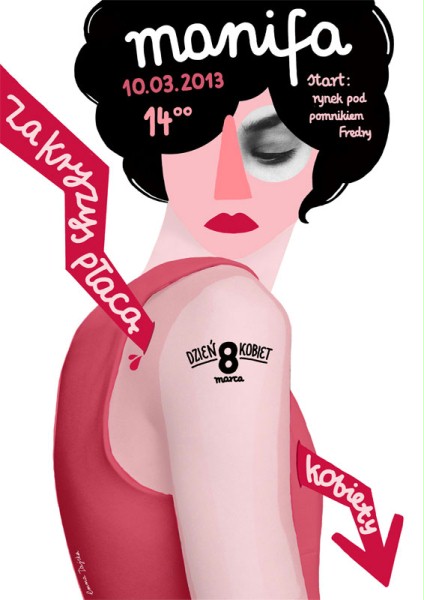
“Women pay for the crisis”. Meeting at 2pm on Sunday the 10th of March on the rynek by the Fredro momument.
“Anything about abortion?”, I asked. “Yeah”, he replied,”I saw a few banners about that theme close to me., saying “My body, my decision”, and the such. There were also some socialist banners.”
“That’s good. You know that story of the Socialist Workers’ Party in GB, where the upper echelons (largely comprising of men) covered up a rape allegation against a man and then slurred the woman? That was a disgrace to the left-wing. I would hope that the left-wing at least would be pro-women.”
I finished my coffee, thinking as I did so. “I guess this shows that the problem is not men, rather, domination. These men work in a hierarchy, and hierarchies tend to be self-preserving”, I said. I asked for another espresso and reconsidered, “No, that lets men off too easily. That men tend to be in the top of hierarchies and that they live in a man-world (their colleagues and friends are male), they don’t know the world of having strangers commenting on their body on the streets. I don’t think they even want to know”.
“Note how those men who are against International Men’s Day tend to be those who are middle-class and sexist towards women. They are talking from a position of strength and don’t like hearing uncomfortable things like men being more likely to be homeless, killed in war, in prison, die earlier, or suffer domestic violence at the hands of women. Talk of an apparent “weakness” of men makes them feel scared. It’s similar when they hear about rape of women, this produces a feeling of resentment against women, as they don’t like to be confronted with the fact that some men do bad things,” said my friend.
“That weekend we went to in the countryside where there were loads of New Age and political type of people. Note how the men tended to play drums while the women tended to cook and wash up. Theoretically, these people were going to be the more progressive people.” I drained my espresso and said, winking, “Keeping to the praxis of feminism, we need to go, and therefore we have to pay.” I asked the waitress for the bill. “You watch who she gives the bill to now”, said I.
The waitress came over with the bill.
She put it on the centre of the table.
I laughed. “That proves nothing”.
As we walked out the cafe my friend told me “You look thoughtful”.
“Nah, I’m just wondering whether it would be better if this article would have been written in a standard format instead of this story-style.”
“I’m not even sure whether people will read this article all the way to the bottom”.




